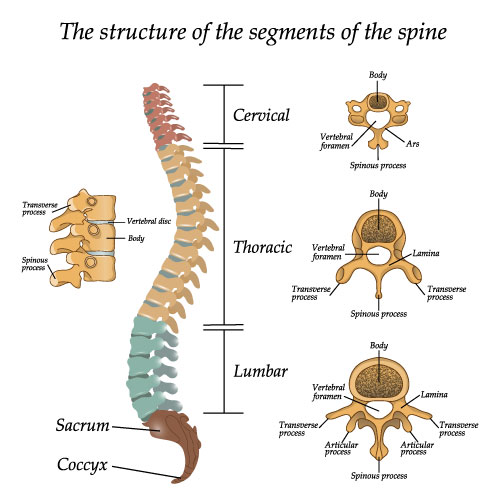Last Updated on January 25, 2019 by The Young Firm

What are Herniated Disks?
Herniated disks are a very painful maritime injury. The pain can be so severe that it affects not only your ability to work but everything else that you do.
Your spine is made up of bones called vertebrae. The vertebrae are cushioned by small, spongy disks. These disks act as the shock absorbers for the spine. They keep the bones from knocking together and from painfully pressing on the nerves, and they make your spine flexible.
When a disk is damaged, it may bulge or break open. This is called a herniated disk. Other names for the same injury are herniated discs, bulging disks, slipped disks and ruptured disks.
How Herniated Discs Happen
A herniated disk can be caused by the on-going wear and tear of your everyday work, or it can be caused by an injury such as slipping on a wet deck, being jarred in a collision with another vessel or being hit by falling equipment or cargo.
Herniated disks can occur anywhere in the spine, but are most common in the lower back.
Symptoms of Disk Herniation
The symptoms of a disk herniation can vary. If the herniated disk is pressing on the nerve roots, it can cause pain, numbness, tingling, and weakness in the area of the body where that nerve travels. Often a herniated disk in the lower back will cause sciatica, pain, and numbness in one buttock and down the corresponding leg. If a nerve is not pressed, there may be no symptoms at all.
Weakness or numbness in both legs and a loss of bladder or bowel control may be a sign of a rare, but serious condition called cauda equine syndrome. If you experience these symptoms, see a doctor right away.
Diagnosis and Treatment
A doctor will diagnose a herniated disk by talking to you about your symptoms. A doctor may also order an MRI or CT scan to confirm the diagnosis and rule out other problems.
Treatment usually includes rest, light activity, strengthening exercises and physical therapy. A doctor may prescribe medication to help with pain and swelling. With treatment, most herniated disks heal within 6 months. About ten percent of herniated disks require surgery.
If you’ve been injured in an offshore accident, contact the Louisiana maritime lawyers at The Young Firm. For more than 40 years, our attorneys are experts in both general Maritime Law and the Jones Act.
More articles on back injuries:

